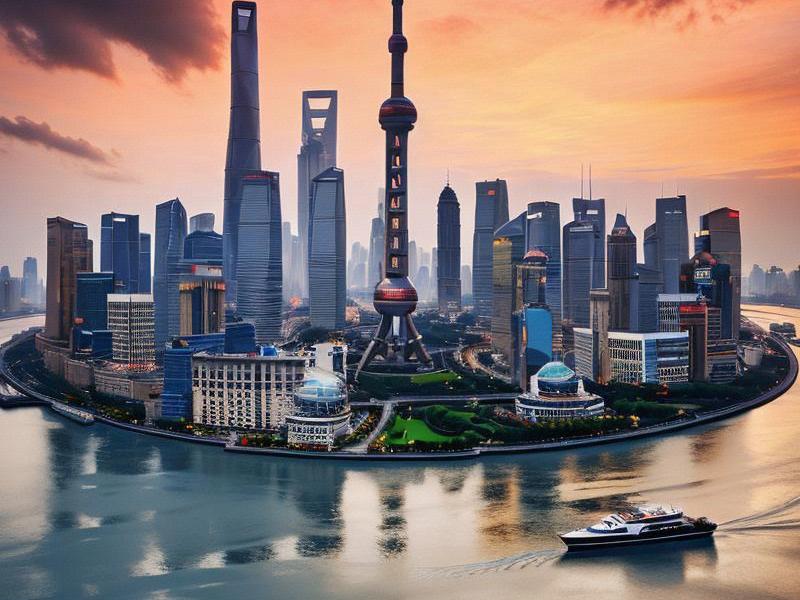
Shanghai's journey to becoming a global city is nothing short of remarkable. Once a small fishing village, it has grown into one of the world's most dynamic urban centers. The city's strategic location along the Yangtze River Delta has been a significant factor in its rise. Shanghai serves as a major gateway to China, connecting the country with the rest of the world through its bustling ports and extensive transportation networks.
The late 19th and early 20th centuries marked a turning point for Shanghai. The city became a concessions territory, attracting foreign investment and fostering a cosmopolitan culture. This period saw the construction of iconic buildings such as the Bund and the French Concession, which still stand today as symbols of Shanghai's rich history and architectural diversity.
In the latter half of the 20th century, Shanghai experienced rapid economic growth, particularly after the economic reforms initiated in 1978. The establishment of the Pudong New Area in the 1990s was a pivotal moment in Shanghai's development. Pudong, once a rural area, has transformed into a modern financial district, home to the iconic Oriental Pearl Tower, the Jin Mao Tower, and the Shanghai Tower, the tallest building in China.
Shanghai's economic hub status is further reinforced by its role as a leading center for finance, trade, and commerce. The city is home to the Shanghai Stock Exchange, one of the largest stock exchanges in the world, and the Shanghai Free Trade Zone, which promotes international trade and investment. Shanghai's port, the busiest container port in the world, handles a significant portion of global maritime trade.
上海龙凤419杨浦 The city's economic success is not limited to traditional industries. Shanghai has also emerged as a hub for technology and innovation. The Zhangjiang Hi-Tech Park, often referred to as "China's Silicon Valley," houses numerous high-tech companies and research institutions. The city's commitment to innovation is evident in its initiatives to develop artificial intelligence, biotechnology, and other cutting-edge technologies.
Culturally, Shanghai is a melting pot of diverse influences. The city's history as a concessions territory has left a lasting impact on its architecture, cuisine, and lifestyle. The Bund, with its European-style buildings, offers a glimpse into the city's colonial past, while the French Concession retains its charming cobblestone streets and tree-lined boulevards.
Shanghai's culinary scene is renowned for its fusion of Chinese and Western flavors. From traditional Shanghainese dishes like xiaolongbao (soup dumplings) and shengjianbao (pan-fried buns) to international cuisines, the city offers a culinary experience that caters to all tastes. The vibrant night markets and bustling food streets are a testament to the city's love for food and its role as a gastronomic capital.
The city's cultural vibrancy extends beyond food. Shanghai is home to numerous museums, art galleries, and theaters, showcasing its rich cultural heritage and contemporary art scene. The Shanghai Museum, with its extensive collection of Chinese art, attracts millions of visitors each year. The city's art scene is thriving, with galleries like the Power Station of Art and the M50 Creative Park providing platforms for local and international artists.
上海私人外卖工作室联系方式 Shanghai's international influence is evident in its role as a global cultural and diplomatic hub. The city hosts numerous international events, including the Shanghai International Film Festival, the Shanghai Fashion Week, and the World Expo. These events not only showcase Shanghai's cultural and economic achievements but also foster international collaboration and exchange.
The city's commitment to sustainability and green development is another aspect of its global city status. Shanghai has implemented various initiatives to reduce pollution, promote renewable energy, and improve urban living conditions. The city's green spaces, such as the Century Park and the Shanghai Botanical Garden, provide residents and visitors with opportunities to connect with nature amidst the urban landscape.
Shanghai's education system is also a key factor in its global city status. The city is home to prestigious universities such as Fudan University and Tongji University, which attract students and researchers from around the world. These institutions contribute to the city's intellectual capital and innovation ecosystem.
上海喝茶服务vx The city's transportation infrastructure is another testament to its global city status. Shanghai's metro system, one of the busiest in the world, provides efficient and convenient travel for millions of residents and visitors. The city's international airports, including Hongqiao International Airport and Pudong International Airport, connect Shanghai to major cities around the globe.
Shanghai's future as a global city is promising, with ongoing developments aimed at enhancing its competitiveness and sustainability. The city's leadership has set ambitious goals for the future, including the development of smart city technologies, the promotion of green energy, and the enhancement of urban living standards.
In conclusion, Shanghai's transformation into an iconic global city is a story of resilience, innovation, and cultural fusion. From its historical roots to its modern achievements, Shanghai continues to captivate the world with its unique blend of tradition and progress. As a global economic hub, cultural capital, and international influence, Shanghai stands as a beacon of China's rise on the world stage.
